When I ran the APUE sample code shown below on my Mac, it throws a EXC_BAD_ACCESS exception. I have checked the file cursor, and it is in the right position 12. I even try to replace the fprintf with fputc. After that, it works fine and the exception is gone. But I want to know what happened out there and why.
#include "apue.h"
#define BSZ 48
int main(){
FILE *fp;
char buf[BSZ];
memset(buf,'a',BSZ-2);
buf[BSZ-2]='\0';
buf[BSZ-1]='X';
if ((fp = fmemopen(buf,BSZ,"w+")) == NULL)
err_sys("fmemopen failed");
printf("initial buffer contents: %s\n",buf);
fprintf(fp, "hello, world");
printf("before flush: %s\n", buf);
fflush(fp);
printf("after fflush: %s\n",buf);
printf("len of string in buf = %ld\n",(long)strlen(buf));
memset(buf,'b', BSZ-2);
buf[BSZ-2]='\0';
buf[BSZ-1]='X';
fprintf(buf, "hello, world");
// fputc('a',fp);
fseek(fp,0,SEEK_SET);
printf("after fseek: %s\n",buf);
printf("len of string in buf = %ld\n", (long)strlen(buf));
}
Console out put as below:
/Users/heping/Documents/APUE-Example-Code/stdio/cmake-build-debug/memstr
initial buffer contents:
before flush: hello, world
after fflush: hello, world
len of string in buf = 12
Exception: EXC_BAD_ACCESS (code=1, address=0x8)
Process finished with exit code 9
Last stack frame like this: it seems like that something is wrong with the file lock, I think.
